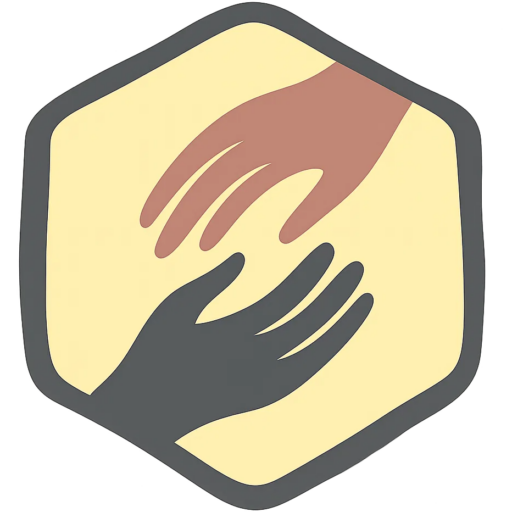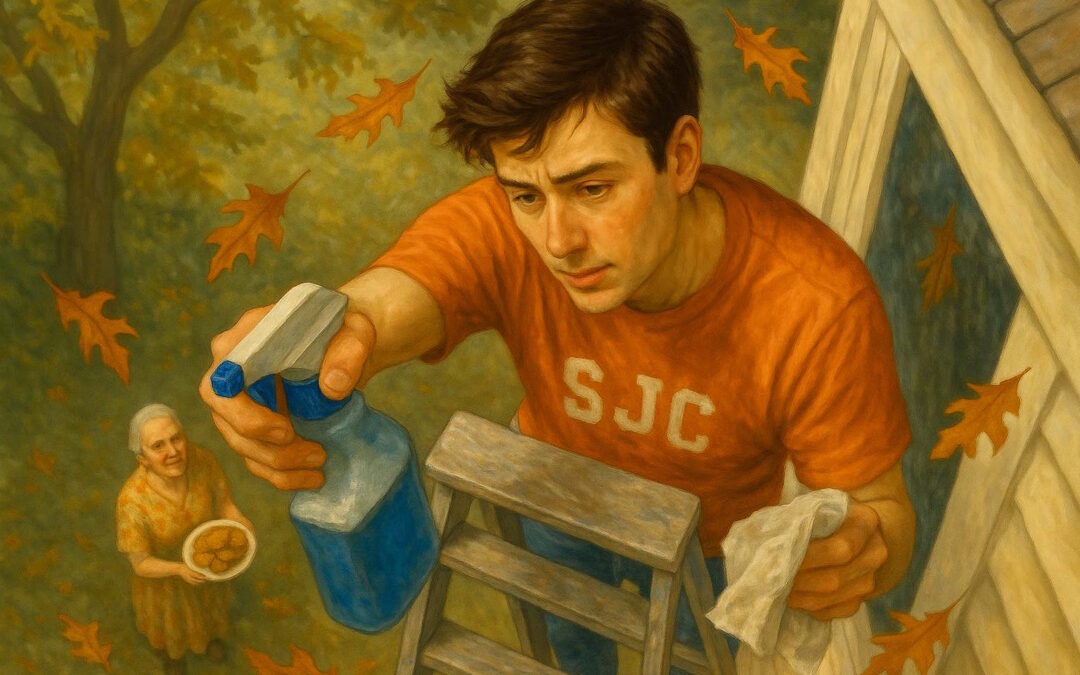More Than Maple Leaves
High up on a ladder, I had just pulled the last stubborn clump of oak leaves from Mrs. Maple’s gutter when I heard her voice call out from below.
“Since you’re finished, why don’t you come down and have some milk and cookies?” she offered, her voice slightly high-pitched and creaky with age.
I looked down, surprised. I hadn’t expected this. My job was to rake leaves—get in, get paid, and head back to campus. But here she was, inviting me inside like a grandmother welcoming a grandson. It was a moment of warmth that took me off guard.
“Sure,” I said. “That sounds great.”
Truth be told, I was hungry. Yard work always stirred up a solid appetite, and milk and cookies—even if it sounded a little old-fashioned—sounded just right. Simpler and more wholesome than the beer I’d usually drink with my friends on a Friday or Saturday night.
Fresh Homemade Cookies
Mrs. Maple was elderly, likely in her seventies or eighties. She wore a neatly buttoned cardigan, and her gray hair was swept up into a soft bun. She lived alone in a modest house in the small Indiana town where I was attending my first year at a private college. I never asked if she had children, but no one else seemed to be around.
Her kitchen was tidy and smelled faintly of cinnamon and lemon-scented cleaner. We sat at a small table on chairs with vinyl cushions and a chipped porcelain teapot. She poured two glasses of milk and passed me a plate of fresh homemade cookies.
“So,” she asked, “how are your classes coming along? Making friends?”
I nodded and shared a bit about my studies, my dorm life, and where I came from. She listened with interest, occasionally nodding, her eyes twinkling with what I took to be a mixture of nostalgia and longing.
A Glimpse Into Her Pain
It must have been refreshing for her to talk with someone young, full of energy and plans. Maybe she missed that sort of conversation.
Then, in the middle of our easy back-and-forth, her tone shifted.
“I’ve had shingles for a while now,” she said quietly, brushing her arm gently with her fingertips. “They’re no picnic. I hope you never get them.”
I looked up, puzzled. “Shingles?”
She gave a dry chuckle. “Never heard of them? Lucky you.”
She explained that shingles is a painful condition caused by the same virus that causes chickenpox. The virus lies dormant for years and can reactivate later in life, usually when the immune system weakens. It brings burning, tingling rashes, nerve pain, and exhaustion—often lingering long after the rash fades. There’s no quick fix for it. Relief, she said, was hard to come by.
“There’s just nothing you can do but ride it out,” she said with a shrug. “It’s one of those things that comes with getting older.”
Warning or Initiation?
I’d never had an older adult talk to me so candidly about pain—especially not about the wear and tear of aging. Her words were more than a passing complaint; they felt like a warning, or maybe a kind of initiation into a reality that I, in my youth, had never imagined.
She wasn’t just making small talk. She was letting me in.
That short conversation stayed with me. As I pedaled my bike back to campus with a folded ten-dollar bill in my pocket and the taste of milk still on my breath, I realized I had just experienced something bigger than a part-time gig. I had been given a glimpse—brief and unexpected—into what life might look like down the road. And more than that, I had felt accepted by someone from a completely different generation.
The Senior Network
A few weeks later I got a call from another older woman in town. She needed her windows washed and said she’d heard I did “fine work.” I guess word was getting around in the local senior network, and I had apparently passed some sort of unspoken test. This time, I was up a ladder with a spray bottle of vinegar water, a roll of newspaper, and a squeegee in hand. And yes—there was milk and cookies waiting for me when I finished.
I’d gotten the first job through the college’s public relations office. The man in charge had told me, “These little jobs help our students earn some extra money as well as build goodwill between the college and the town.” At the time, I hadn’t thought much of it. But now I could see his point. This wasn’t just about making a few bucks—it was about making connections.
Out of the College Bubble
The college sat in a quiet town of about five thousand people in northern Indiana, surrounded by cornfields and stitched together by simple routines. The local newspaper printed things like: Mr. and Mrs. Jones visited Mr. and Mrs. Brown last weekend. They had fried chicken and mashed potatoes and enjoyed a lively conversation.
Everyone seemed to know everyone. It was a different world from the dorm parties and lecture halls of campus life—and a good alternative.
These town jobs became small windows into the outside world. I got out of the college bubble, breathed fresh air, worked with my hands, and listened to stories from people who had lived a whole lifetime more than I had.
And even now, years later, I haven’t had shingles. But I still carry that quiet afternoon like a postcard in my mind from the future, offering a glimpse of the winding road of old age.

